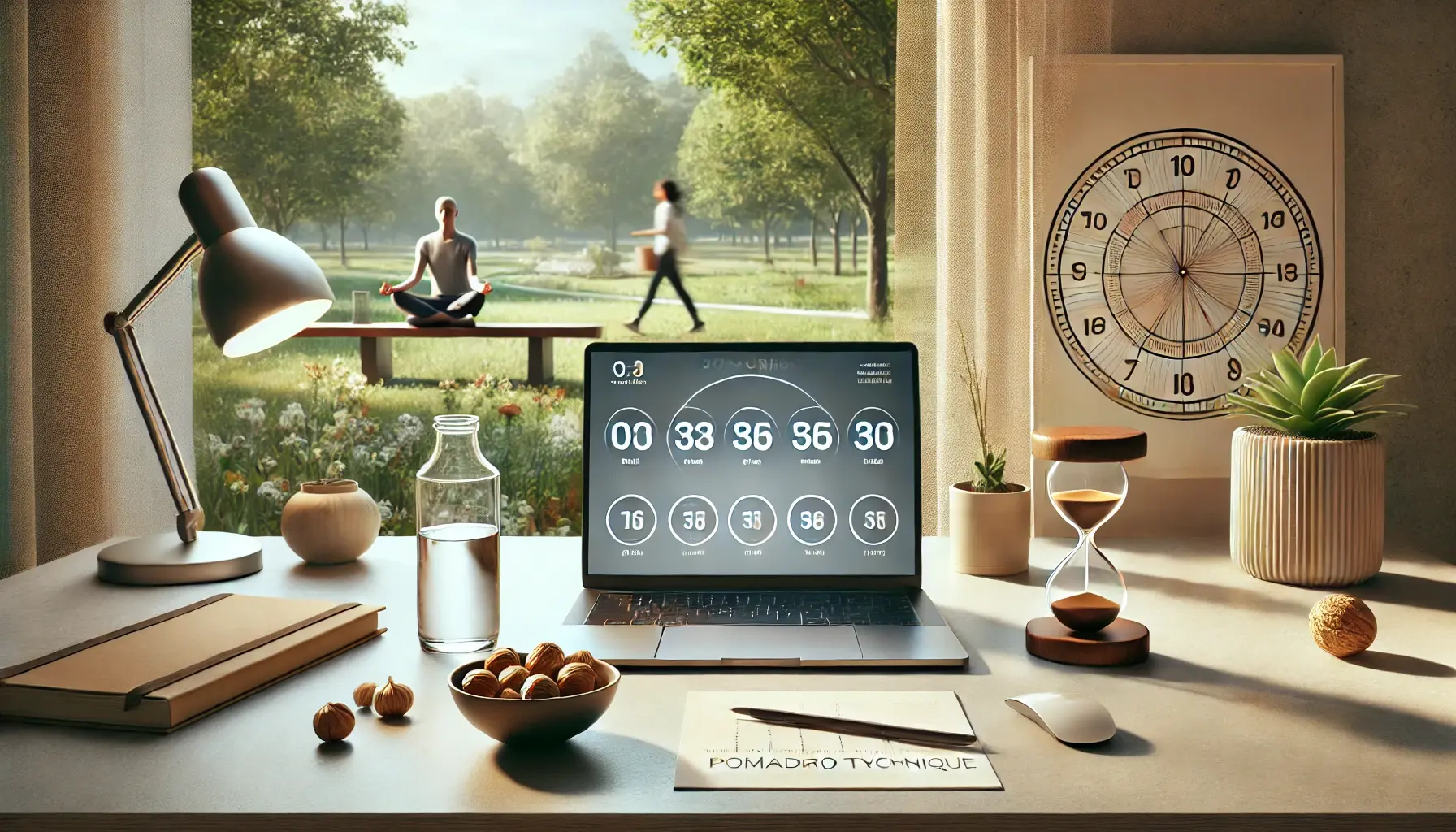5 Quick Ways to Improve Your Focus Today (No, Really).
Ever sat down to get some work done, and suddenly, you’re five episodes deep into a reality TV show that you swear you’ve seen before, but somehow you can’t stop watching? Or maybe you’re trying to study, but the words on the page just won’t stay in your head? If this sounds familiar, you’re not alone. It’s a challenge many of us face, but the good news is, you can improve your focus today. You don’t need to sign up for a yearlong course or buy that “magical” focus pill (spoiler alert: they don’t work). You can improve your focus right now with these simple, science-backed strategies. Ready for some quick ways to improve your focus? Here’s how you can improve your focus today.
Ready for some quick fixes? Here’s some quick ways to improve your focus.
1. Get Moving: Just Move
This one’s a game-changer. Ever notice how after a brisk walk or a quick 10-minute dance party in your kitchen (don’t worry, no one’s judging) you suddenly feel more alert? That’s because movement helps boost dopamine – the “feel good” chemical that’s also responsible for focus and motivation. Dopamine’s a little fickle when you have ADHD or other neurodivergent traits, and sometimes it needs a little nudge to get things flowing. That’s where movement comes in.
Unlock peak brain performance with science-backed biohacks. Join free now & get your guide for just £4.99 (45% off)!

You don’t need to run a marathon (unless you want to, in which case, go ahead). A quick yoga session, stretching, or even just a walk around the block can help reset your brain. Get your blood pumping and feel your focus sharpen.
2. Eat Something That’s Not a Sugar Rush
We’ve all been there: sluggish, in need of a quick pick-me-up, so you grab that chocolate bar or bag of chips. Instant gratification, right? The thing is, sugar’s a double-edged sword. Sure, it gives you an initial boost, but it’s followed by a crash that leaves you even more distracted than before. So, let’s trade that sugar for something better.
Try snacks that give you sustained energy – think protein-packed treats like nuts or eggs, or healthy fats like avocado. These foods help maintain stable blood sugar levels, which is key for keeping your brain focused. For neurodivergent folks, it’s even more important to fuel the brain properly, so skip the candy and try a brain-boosting snack instead.
3. Hydrate – Yes, Seriously
Dehydration is sneaky. You don’t always feel thirsty until it’s too late, and by then, it can affect your ability to concentrate. In fact, studies show that even mild dehydration can impact focus, memory, and mood. So, the next time you catch yourself staring at a blank screen wondering why your brain isn’t working, check in with your water intake.
Try to drink at least 8 glasses of water a day, but if you’re like me and forget to drink, keep a water bottle next to you at all times. Trust me, your focus will thank you.
4. The Pomodoro Technique – It’s Not Just for Tomatoes
Okay, so you’ve probably heard of the Pomodoro Technique, but it’s worth repeating because it works. This method is simple: work for 25 minutes, then take a 5-minute break. Rinse and repeat. After four sessions, take a longer 15–30-minute break. Why does this work so well? Because it stops your brain from getting overwhelmed. It’s especially helpful if you have ADHD or struggle with hyperfocus.
The trick is to break your work into bite-sized chunks and reward yourself with regular breaks. Your brain gets the short bursts of focus it craves, and the little breaks give you time to recharge. Plus, you can use those 5-minute breaks to check your phone, but just don’t fall down the reality TV rabbit hole.
5. Practice Mindfulness (Yes, Even If You Hate It)
I know, I know. Mindfulness might sound like some new-age trend you’re not into. But bear with me here. Mindfulness is simply about being present and aware in the moment, and it can have a major impact on your focus. Whether it’s deep breathing, meditation, or just focusing on your surroundings for a few minutes, mindfulness helps to reset your brain.
The best part? It’s free, you can do it anywhere, and it doesn’t take long to see results. Even just a couple of minutes of focused breathing or a short guided meditation can help you feel more centred and less distracted. And trust me, it’s worth it.
Long-Term Focus Boosters: Beyond the Quick Fix
Okay, now that we’ve covered the quick fixes to boost your focus today, let’s talk about the longer-term strategies. These won’t give you instant results, but with consistency, they’ll help you manage your focus in the long run.
Sleep: The Ultimate Focus Hack
I know, no one wants to hear this. But it’s true: getting enough sleep is one of the best ways to keep your focus sharp. It’s not just about getting 8 hours of sleep, it’s about quality sleep. This is especially important if you’re neurodivergent, as lack of sleep can exacerbate symptoms like inattention, impulsivity, and emotional dysregulation.
Establish a regular sleep routine and stick to it. Avoid screens before bed, make your bedroom a relaxing environment, and aim to wind down at least an hour before sleep. Your brain needs time to process everything from the day, so let it.
Supplements – Do They Work?
You might be wondering: “Can I just pop a pill and get better focus?” The short answer is: maybe, but it depends. There are some supplements that can support brain health, but no magic pill will solve everything. Let’s focus on quick ways to improve your focus today.
Omega-3 fatty acids, like those found in fish oil, are excellent for brain function and can help with focus. Another one to look into is L-theanine, which has been shown to promote relaxation without drowsiness, making it easier to concentrate. For those with ADHD, studies have suggested that zinc and magnesium might help balance dopamine levels.
But remember: supplements can help, but they shouldn’t replace the basics, good sleep, nutrition, and mindfulness.
B3 – The Focus Miracle?
Some studies (Cambridge University as one example) suggest that niacin (vitamin B3) might help improve focus and attention for people with ADHD. Research has shown that niacin supplementation could reduce symptoms of inattention and hyperactivity in children with ADHD, and some studies in adults have shown improvements in concentration and focus when combined with other nutrients. However, while the findings are promising, they are still preliminary, and more research is needed. If you’re considering niacin as a supplement for ADHD, you should speak with a healthcare professional to see if it’s right for you. It’s important to approach any new treatment carefully and make sure it fits into your overall health plan.
Neurofeedback, CBT, DBT, and Hypnotherapy
While you’re trying to tackle focus issues, therapies like Neurofeedback, Cognitive Behavioural Therapy (CBT), and Dialectical Behaviour Therapy (DBT) might be worth looking into. These approaches can help train your brain to manage focus and emotional regulation more effectively. And if you’re open to it, Hypnotherapy can also offer another layer of support, helping to calm the mind and potentially improve focus.
Final Thoughts On Quick Ways to Improve Your Focus
Increasing focus isn’t about one magical solution. It’s a combination of short-term fixes, long-term strategies, and a little bit of self-awareness. Focus is a skill that you can improve, and by putting in the effort each day, you’ll find that you can keep it in check.
If you’re neurodivergent, these tips may take a bit more effort, but they’re just as important. ADHD and other conditions often cause dopamine dysregulation, which makes it harder to focus. But with the right tools, strategies, and understanding of how your brain works, you can find ways to make focus a lot less elusive.
So go ahead, try out these quick ways to improve your focus as well as the longer term strategies. Get moving, hydrate, take that short break, and remember: focus is a skill you can master, one step at a time.
Please note: While we share information and tips to support your journey, we are not health professionals. Always consult a qualified healthcare provider before making any changes to your wellness routine. Your health is personal, and we’re here to help guide you, not diagnose or treat.







